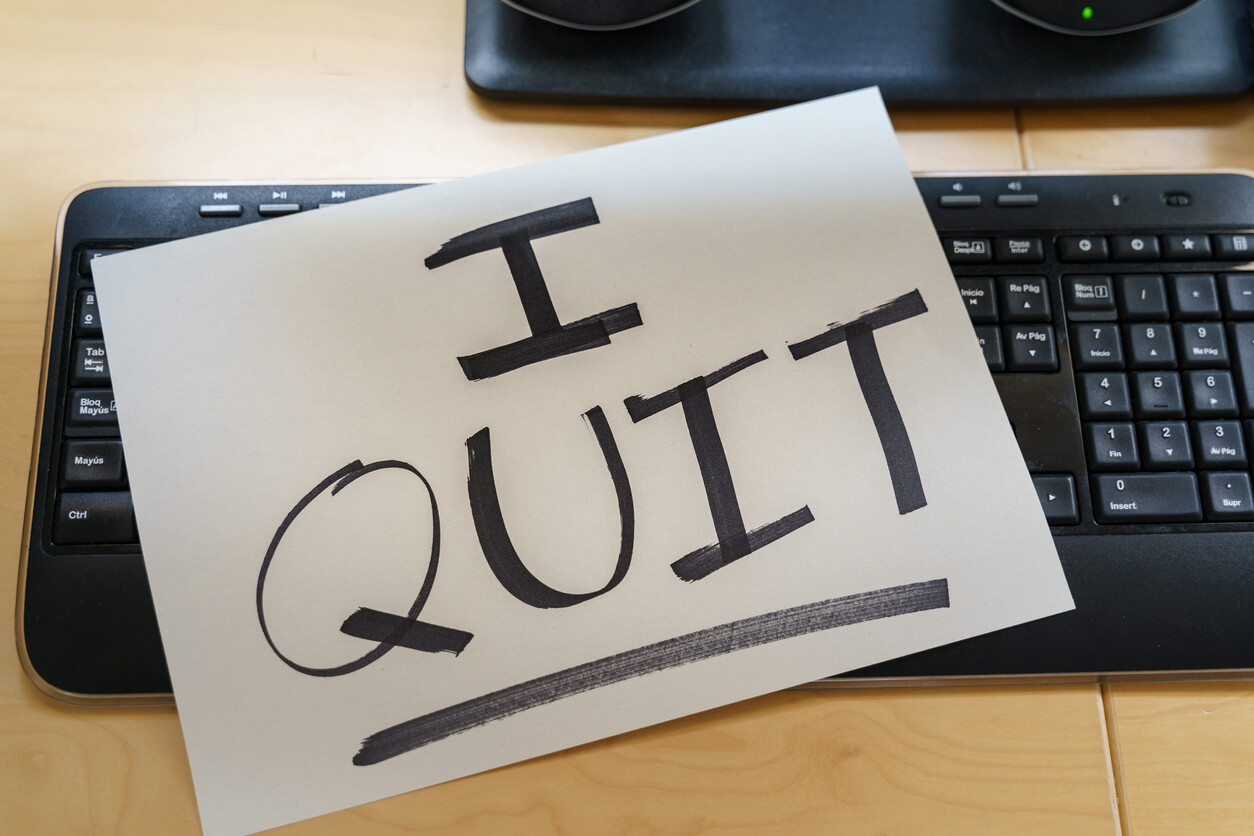Deciding to quit your job is not easy; there are reasons why you might be thinking about it. But have you thought about your finances? How would you manage them? We all know our expenses do not wait for any revenue. Instead, with time, these might even grow. Nothing comes free from health to our living, and when you do not have any job, you have more stake than you would ever think.
There can be distinct reasons for you to abandon your job. The basics are:
- There is no possibility of growth
- They have not granted increments for more than a year.

- There are conflicts in the work environment
What to do Before Giving Up?
Quitting a job can come with loads of risks. It can open doors for opportunities, risks, and threats. The idea is simple: if you do not analyze your situation, avoid acting. Trouble will come your way.
Your actions should be well thought out. As with the benefits you receive from your job, you will not receive any more of them. So, consider a blueprint for all your contingency plans to avoid excessive amounts of inconveniences.

Have an Action Plan
Have a clear plan about what you will do after losing your job. If you do not get a new job, chances are you might have to remain unemployed for more than three months. Without a clear visualization, you can quickly become indebted due to a lack of payment of your financial responsibilities, or you could even lose your assets.
Additionally, you have a high chance of falling into depression without a job. As everything of yours will be at stake, without a plan, you can lose your sanity, too. Keep calm, and do not worry about every minor issue there is.
Have Another Job Offer
The main recommendation is to have another opportunity waiting so you do not stop receiving income. Before making that decision, do your best to apply for different vacancies. If you quit without a job, you can devote full time to attending interviews and leaving your resume elsewhere.
It cannot be easy to secure a new job while the current one is still; you must attend different interviews, and the workplace cannot. So, while you are still doing your job, productively utilize all your spare time. Consider every opportunity that can benefit you. If there appears to be a job in the waiting, respond as early as possible.

Cut Down on Your Monthly Expenses
Cut down your monthly expenses starting from the very beginning of your job. With your savings, you will have enough finances to help you live through these struggling times.
So, try to save 3-6 months of your monthly expenses. Always be ready for the worst-case scenarios. All this will help you make your payments and continue with a lifestyle like you had while you were still doing your job.
Involve Your Family
If you have a family, keep their ideas and suggestions close to your heart, especially if you are the only one caring for their livelihood. You may have to see different options before deciding, such as having your partner get a job or postponing it until you can save enough. Because, for all of us, the least desirable thing is for our families to suffer and their quality of life.
Considerations After Giving Up
Now that you have finished your job, stick to your decision. Whatever the reason, you have decided and know everything that led to it. One of the worst things you could do after quitting a job is to sit idle and not do anything. So, do everything in you to live a life, if not the same, closer to the one you were already living. About Complete Controller® – America’s Bookkeeping Experts Complete Controller is the Nation’s Leader in virtual bookkeeping, providing service to businesses and households alike. Utilizing Complete Controller’s technology, clients gain access to a cloud platform where their QuickBooks™️ file, critical financial documents, and back-office tools are hosted in an efficient SSO environment. Complete Controller’s team of certified US-based accounting professionals provide bookkeeping, record storage, performance reporting, and controller services including training, cash-flow management, budgeting and forecasting, process and controls advisement, and bill-pay. With flat-rate service plans, Complete Controller is the most cost-effective expert accounting solution for business, family-office, trusts, and households of any size or complexity.
About Complete Controller® – America’s Bookkeeping Experts Complete Controller is the Nation’s Leader in virtual bookkeeping, providing service to businesses and households alike. Utilizing Complete Controller’s technology, clients gain access to a cloud platform where their QuickBooks™️ file, critical financial documents, and back-office tools are hosted in an efficient SSO environment. Complete Controller’s team of certified US-based accounting professionals provide bookkeeping, record storage, performance reporting, and controller services including training, cash-flow management, budgeting and forecasting, process and controls advisement, and bill-pay. With flat-rate service plans, Complete Controller is the most cost-effective expert accounting solution for business, family-office, trusts, and households of any size or complexity.




